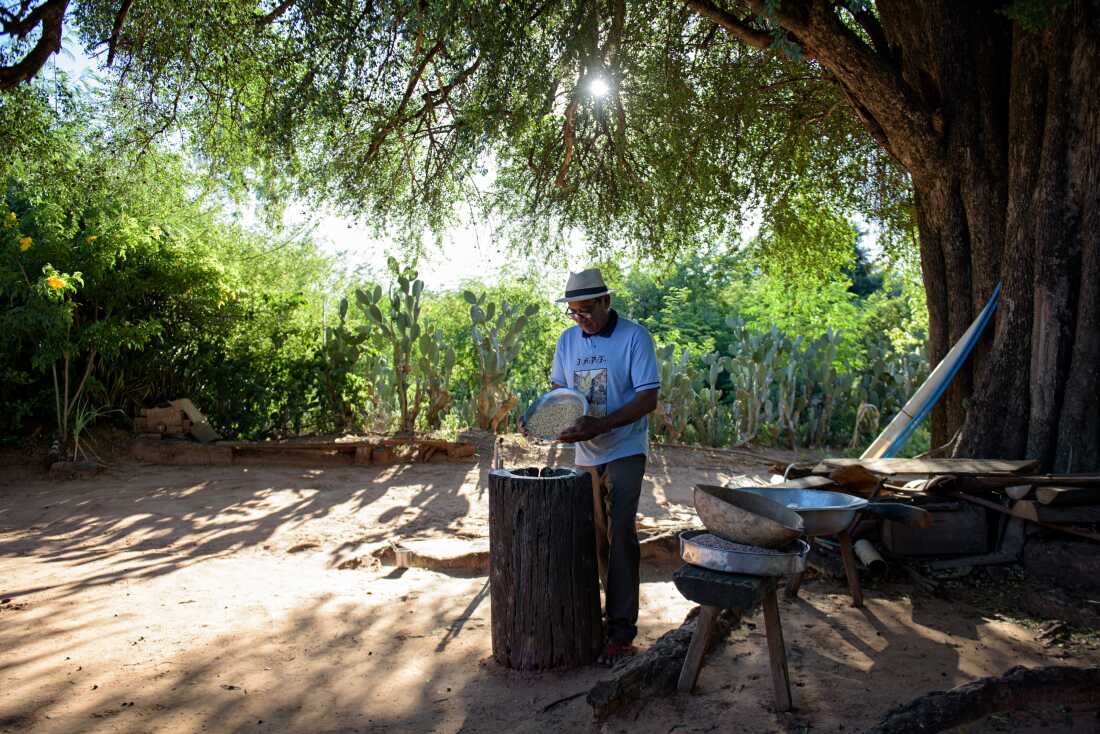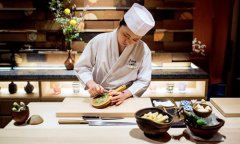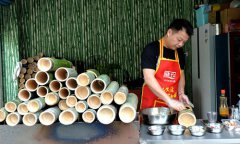We asked a dozen photographers from The Everyday Projects — a global community of photographers using images to challenge harmful stereotypes — to share their favorite healing soups. If you missed the first installment, check it out here. Hope you're ready for seconds, because we've got another batch.

Goats and Soda Thyme for some healing soup recipes from around the world
The recipes below have been adapted to make them accessible to home cooks everywhere. In the stories below about the soups, you may spot ingredients that the average shopper is unlikely to encounter at their local grocery store. (Good luck finding "a chicken that has not yet sung," waterleaf harvested at 5 a.m. and zebu organs.) We've provided substitutions that will hopefully help you cook up something similar.
We'd also like to hear from you about healing soups in your family repertoire. Send a brief description to [email protected] with the subject line "soup." We hope to include reader recipes in a follow-up story.

As the traditional Brazilian soup pirão simmers in the kitchen, Geraldo Gomes prepares another traditional dish in the backyard, pounding red rice with a wooden pestle. "Women would eat this rice with the pirão," he says. "It helps prevent anemia and makes both the mother and baby stronger. I read somewhere that research shows red rice is good for the blood, digestion and even the heart." Its high fiber content is the reason why. Ana Caroline de Lima for NPR hide caption
toggle caption Ana Caroline de Lima for NPR Brazil From a chicken that has not yet sungBy Ana Caroline de Lima
In Serranópolis de Minas, a rural town in southeastern Brazil, Aparecida Gomes, 60, stirs a pot of pirão de galinha, a traditional Brazilian dish made by mixing broth (often chicken broth) with flour and usually served with rice. This dish has been prescribed by midwives to postpartum women for generations and is meant to fortify the body, enrich breast milk and ward off infection (despite a lack of scientific evidence for the claims).
Sponsor Message
Aparecida learned to make pirão from her mother, Rita Maria Gomes, 80, a former midwife. "When I was younger, the way we cared for women after childbirth was rooted in nature," Rita says. "We used what the land gave us — herbs, broths and the wisdom passed down from our ancestors. The postpartum foods and remedies we prepared were essential not only for healing but for strengthening a woman's body after childbirth."
In the backyard, Aparecida's brother, Geraldo Gomes, 62, prepares arroz afogado, pounding red rice with a wooden pestle. He planted and harvested the rice himself. The rice simmers in water with salt, pepper and onions, bubbling into a thick, hearty paste after nearly two hours over a fogão a lenha, a slow-burning wood stove that lets the flavors deepen.








